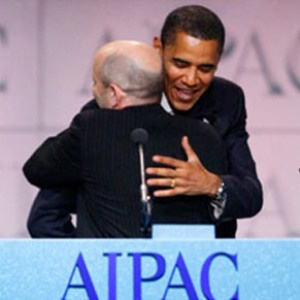Iran Bashing and the U.S. Presidential Elections
Saddam Hussein’s miscalculations should not be repeated by those Americans who have ill intentions against Iran

After months of intense campaigns within the U.S. Democratic Party, in which different nominees exchanged harsh words against each other, last week Barack Obama clinched to the required number of delegates to become the unofficial nominee of the Democratic Party in the next fall presidential elections.
For the Republican Party, John McCain has become the nominee for the November elections for some months now.
The two candidates have different world views in terms of domestic and foreign issues. Although domestic issues such as the current economic recession and high gas prices have affected many Americans and they look to McCain and Obama for solutions to these daunting problems, international issues will remain on the top of the agenda of both candidates. The situation in Iraq where in the course of the last five years more than 4000 U.S. servicemen and servicewomen have been killed, will be a hot issue during the debates between McCain and Obama.
As in the past several presidential elections, Iran will be an important subject in 2008 elections. McCain’s position on Iran is along the line of President Bush though with some nuances. He has said that he would not negotiate with Iran as long as Iran continues to enrich uranium. He has also taken a hawkish position on the use of force against Iran, saying that the only thing worse than attacking Iran would be to allow it to have nuclear weapons.
On the other side, a few months ago Obama took a position on Iran that brought him criticism from the Republicans particularly from McCain. He said that he personally would be ready to talk to the Iranian leaders without any pre-condition. He elaborated on this proposition by saying that the U.S. should talk to its adversaries.
Last week in a speech before the American Israeli Public Affairs Committee (AIPAC), an Israeli lobby group, Obama took a very tough position against Iran. He said that he would do everything in his power to prevent Iran from obtaining a nuclear weapon. His main message, particularly before Jewish voters whom he needs badly for November elections, was that he was not going to be soft on Iran. He used the word "everything" three times in order to show that he would be ready to use force, if necessary, against Iran.
Obama reiterated his position on the need to talk to Tehran saying that in coordination with the allies he would open up lines of communications and lead diplomacy with the appropriate Iranian leader at a time and place of his choosing if and only if it can advance the interests of the United States.
It was clear that Obama did not want to give an excuse to his opponents in America to accuse him of giving in to the so-called Iranian quest for nuclear weapons. Obama also had the Jewish votes in mind when he spoke very favorably about Israel’s security and the preservation of its identity as a Jewish state with an undivided Jerusalem as its capital. Obama’s stance on Jerusalem was welcomed by the Israeli Prime Minister who said that Obama’s appearance was very impressive and his remarks on Jerusalem were very touching.
The AIPAC meeting was full of Iran bashing including that of John McCain who promised to pursue tougher financial sanctions against Iran if he was elected as president.
Anti-Iran statements reached their hike last week when an Israeli Minister openly threatened Iran with military attack if Iran continued with its nuclear program. Shaul Mofaz told an Israeli paper that attacking Iran in order to stop its nuclear plans will be unavoidable. Interestingly enough, the White House reacted to this bellicose statement by only saying that the U.S. would emphasize diplomacy with Iran without discarding other options. It was only a week ago when Bush in a meeting with Olmert said Iran posed an existential threat to peace the world must take seriously. In the same meeting Olmert used a tough language on Iran, saying its nuclear program must be stopped by all means.
Whether there is any truth in all these threats is not clear. They are probably designed to put pressure on Iran to accept a deal with 5+1 countries and suspend its enrichment program. Apparently, when Mr. Solana visits Iran soon to deliver the incentive package to Iran, he will also talk about the ’international atmosphere’ with regard to Iran’s nuclear program and the need to allay international concern in this regard.
It is also possible that those who are interested in war than diplomacy would actually push for a confrontation with Iran. BBC has reported that one possibility discussed by Israeli analysts is that an attack can occur by Israel or by the United States after the November elections and before the new president’s arrival to the White House in January, with the tacit approval of the new president.
Iran has repeatedly stated that it is not interested in confrontation. However, it is not going to tolerate aggression against its territory either. The Iranians will not sit idly to allow enemies to entertain their designs in their country. The eight years of war with Saddam Hussein proved how tough and resilient the Iranians were in confronting the enemy. The miscalculation of Saddam Hussein should not be repeated by those who have ill intentions against Iran.
Wars and conflicts can be easily initiated, but they cannot be immediately put to an end. The last thing the Middle East needs is to have another destructive conflict with long term repercussions for the entire region. The next U.S. President should realize that dealing with Iraq’s debacle is a daunting task. He does not need to inherit another fiasco from the Bush Administration.

